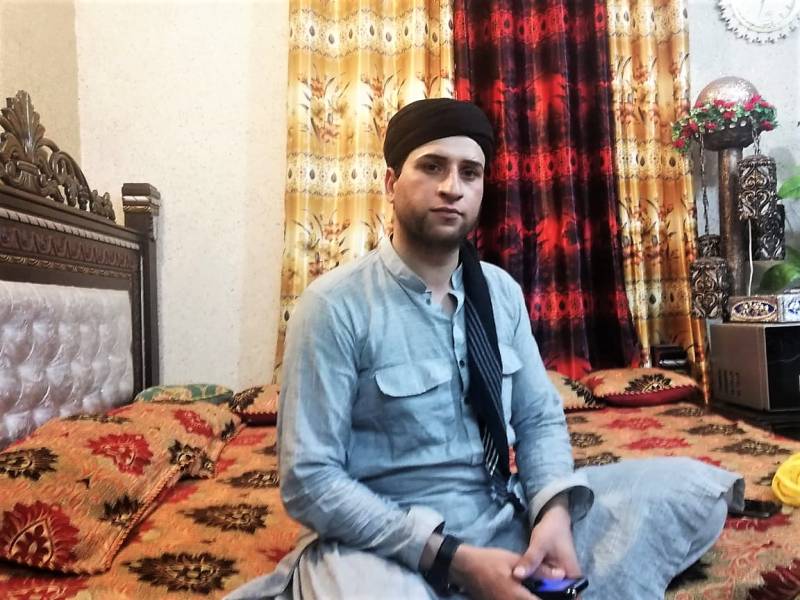
The transgender community in Pakistan are forced to survive with different trades including dancing and begging, which mostly brings discrimination in many areas of life to them, including public accommodations, jobs, education and security. However, preaching religion and running religious schools was not an activity commonly associated with them – until now.
It is Shakeel alias Sonu, 34, who brought about this change by establishing a religious school (Madrassah) for his community to preach Islam in the Sadiqabad area of Rawalpindi city. The Madrassah “Madina Madaris for Transgenders” has formerly started its classes from May 2019 and enrolled 8 members of that community to date.
Shakeel alias Sonu is living in Rawalpindi since the last ten years. He was a dancer by profession but since 2016 he joined Tableeghi Jamaat (a religious organization) and not only changed his general appearance and style, but also his very profession.
“In 2016, one of my friends visited my residence and invited me to join Talibghi Jamaat. I joined them for going out for four months to preach Islam and spread the message of love, peace and humanity,” he recalls.
“It's changed my lifestyle – as well as my ways of being 'colourful' and dancing.” He stopped wearing women's clothes and shaving his beard. Initially, he faced some financial problems after quitting dancing but know he is more than able to get by.
Elaborating his objectives, he says he wants to preach Islam, peace and love to his community – which is largely ignored by the people. There are a large number of Tabeeghi Jamaat members who are working amongst men and women, but the transgender community has lacked attention from them. It is Shakeel who wants to help fill in that gap, by focusing his efforts solely on transgender people.
In his madrassah, initially, only Nazera and Hifz-ul-Quran along with the basic teachings of Islam are taught. He has a further offer for those transgender individuals who “permanently repent” from dancing and the modes of dress commonly associated with them. Shakeel will give them accommodation, three meals a day and a stipend of Rs. 10,000 a month.
To meet the financial requirements of the madrassah and its staff, Shakeel has installed handcarts at different points in the city. Members of the transgender community who stay permanently in the madrassah work to generate revenue by selling items from these handcarts – a few hours each day The income generated though the handcarts is spent on the madrassah's food and utilities.
Transgender Shehbaz aka Kajal, who operates a handcart selling juice at Sadiqabad, Rawalpindi, says that he met Shakeel one year ago and was thus introduced into the Tableeghi Jamaat network.
He says the transgender community also wants to find work other than dancing and begging but society is not yet ready to accept them. “Two of our transgender friends rejoined the traditional ways of the community even after spending time with Tableeghi Markaz – and this was due to the behavior of people in this society!” he adds.
Appreciating the initiative, Almas Bobby, leader and focal person for transgender people in Punjab, says that it is a good initiative to educate community members about the teachings of Islam. However, according to Bobby, the community's leader must encourage and support them so that the project continues successfully.
For his part, Muhammad Iqbal aka Bali says that when he left the dancing profession and joined the Tableghi Jamaat, initially he faced economic difficulties. But he remained devoted to this new path. “After joining Tableeghi Jamaat, the honour I received from society is undefinable”, Iqbal maintains.
Well known religious scholar and Chairman of the Committee for Interfaith Harmony Syed Izhar Bukhari expressed his support for the initiative. “I will also visit the Madrassah soon to deliver lectures to them”, he adds. Responding to a question, he confirms that from his perspective, a transgender person can teach religious knowledge and even lead a prayer. But, he adds that in his view, a male cannot offer prayers while following a transgender person.
